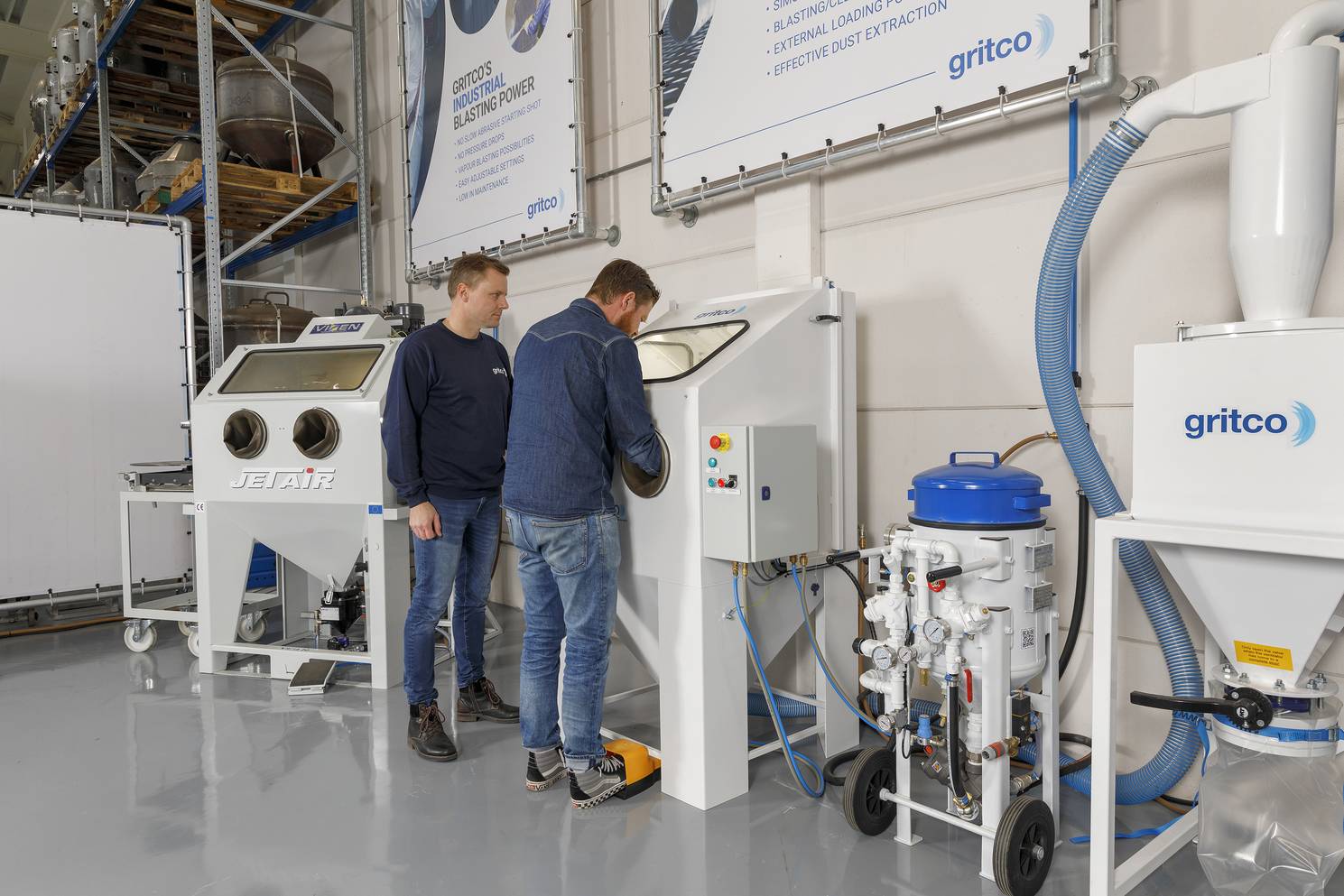Can I use just any sand for blasting?
No, abrasives which contain more than 1% free silica are very harmful and therefore prohibited.
The origins of sandblasting
In the past, blast cleaning operations commonly used silica sand, leading to the term "sandblasting." However, it's now widely known that exposure to respirable crystalline silica during sandblasting can cause silicosis—a severe, potentially fatal respiratory disease characterized by scarring and hardening of the lungs.
Health risks of silica exposure
Silica sand contains over 90% free silica, far exceeding the safe limit of 1% enforced in many countries. During sandblasting, sand particles break down into tiny particles, smaller than 5 microns, which can be inhaled deeply into the lungs. This exposure can cause severe respiratory issues, including pulmonary silicosis (also known as "dust lungs") and, ultimately, can lead to death.
Misconceptions about blasting helmets
Many assume that blasting helmets offer sufficient protection, but this is not always true. Sandblasting with silica sand generates large dust clouds that can linger in the air long after blasting has stopped. For instance, a 2-micron silica dust particle can remain suspended in the air for up to 24 hours under calm conditions. When a worker removes their helmet after blasting, the helmet can become contaminated with silica dust, posing a significant risk when the helmet is put back on. Instead of being protected, the worker may inhale a concentrated dose of silica dust.
Risks to nearby workers
The danger extends beyond the blaster to others on the job site. Silica dust clouds are easily dispersed by wind, exposing unprotected workers nearby to hazardous conditions. This makes compliance with safety regulations even more critical.
Legal restrictions on sand
Due to these severe health risks, most countries have enacted laws prohibiting the use of silica sand for blasting. For example, the Netherlands banned sandblasting with silica sand as early as 1957. Today, terms like "grit blasting," "shot blasting," "abrasive blasting," or "blast cleaning" are used to describe safer practices.
Safer alternatives to silica sand
Several high-quality alternatives are available for single-use blasting applications, such as GMA Garnet, which contains less than 1% free silica, or other materials like aluminum silicate (slag). For processes where abrasives are recycled, such as in blast cabinets or vacuum blast machines, options include aluminum oxide, steel grit, or glass beads, depending on the specific application.
Switching to these alternatives not only ensures compliance with safety regulations but also protects the health of workers and anyone in the vicinity of blasting operations.
Discover our machines
Discover Gritco's high-quality equipment, developed from 34 years of experience and expertise. Optimise the quality and speed of your blasting work with the right blasting machine and equipment.
